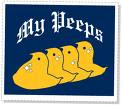Hamlet, Explained (another in a continuing series)
Famous Lines from the Play to Know and Cherish
Act I
- Claudius: ...But now, my cousin Hamlet, and my son -
Hamlet: (aside) A little more than kin, and less than kind.
Claudius: How is it that the clouds still hang on you?
Hamlet: Not so my lord; I am too much i' the sun.- scene i
- O, that this too too solid flesh would melt,
Thaw, and resolve itself into a dew.- scene ii
- How weary, stale, flat, and unprofitable
Seem to me all the uses of this world.- Hamlet speaking in scene ii
- Frailty, thy name is woman!
- Hamlet speaking of Gertrude in scene ii
- But break, my heart, for I must hold my tongue.
- Still Hamlet scene ii
- Thrift, thrift, Horatio! The funeral bak'd meats
Did coldly furnish forth the marriage tables.- Also still Hamlet, scene ii
- A countenance more in sorrow than in anger.
- Horatio, scene ii
- For Hamlet, and the trifling of his favours,
Hold it a fashion and a toy in blood;
A violet in the youth of primy nature,
Forward, not permanent, sweet, not lasting,
The perfume and suppliance of a minute —
No more.- Laertes, scene iii
- Do not, as some ungracious pastors do,
Show me the steep and thorny way to heaven,
Whiles, like a puff'd and reckless libertine,
Himself the primrose path of dalliance treads.
And recks not his own rede.- Ophelia, scene iii
- Be thou familiar, but by no means vulgar.
- Polonius, scene iii
- Give every man thy ear, but few thy voice;
Take each man's censure, but reserve thy judgment.- Polonius, scene iii
- Costly thy habit as thy purse can buy,
But not express'd in fancy; rich, not gaudy;
For the apparel oft proclaims the man.- Polonius, scene iii
- Neither a borrower nor a lender be:
For loan oft loses both itself and friend.- Polonius, scene iii
- This above all — to thine own self be true;
And it must follow, as the night the day,
Thou canst not then be false to any man.- Polonius, scene iii
- But to my mind, — though I am native here
And to the manner born, — it is a custom
More honour'd in the breach than the observance.- Hamlet, scene iv
- Why, what should be the fear?
I do not set my life at a pin's fee,
And for my soul, what can it do to that,
Being a thing immortal as itself?- Hamlet, scene iv
- Something is rotten in the state of Denmark.
- Marcellus, scene iv
- My hour is almost come
When I to sulphrous and tormenting flames
Must render up myself.- Ghost, scene v
- The serpent that did sting thy father's life
Now wears his crown.- Ghost, scene v
- O horrible, O horrible, most horrible!
- Ghost, scene v
- O most pernicious woman!
O, villain, villain, smiling, damned villain!
My tables, — meet it is I set it down,
That one may smile, and smile, and be a villain.- Hamlet, scene v
- There are more things in heaven and earth, Horatio,
Than are dreamt of in your philosophy.- Hamlet, scene v
- How strange or odd soe'er I bear myself —
As I perchance hereafter shall think meet
To put an antic disposition on.- Hamlet, scene v
- The time is out of joint; O cursed spite,
That ever I was born to set it right!- Hamlet, scene v
Act II
- Therefore, since brevity is the soul of wit,
And tediousness the limbs and outward flourishes,
I will be brief.- Polonius, scene ii.
- More matter with less art.
- Gertrude, scene ii.
- That he is mad, 'tis true; 'tis true 'tis pity;
And pity 'tis 'tis true: a foolish figure;
But farewell it, for I will use no art.- Polonius, scene ii
- Doubt thou the stars are fire;
Doubt that the sun doth move;
Doubt truth to be a liar;
But never doubt I love.- Hamlet, from a letter read by Polonius, scene ii
- Polonius: What do you read, my lord?
Hamlet: Words, words, words.- scene ii
- Polonius: (Aside) Though this be madness, yet there is method in 't. - Will you walk out of the air, my lord?
Hamlet: Into my grave.- scene ii
- Polonius: My honored lord, I will most humbly take my leave of you.
Hamlet: You cannot, sir, take from me anything that I will more willingly part withal — except my life — except my life — except my life.- scene ii
- Hamlet: My excellent good friends! How dost thou Guildenstern? Ah, Rosencrantz! Good lads, how do you both?
Rosencrantz: As indifferent as children of the earth.
Guildenstern: Happy in that we are not overhappy; on Fortune's cap we are not the very button.
Hamlet: Nor the soles of her shoe?
Rosencrantz: Neither, my lord.
Hamlet: Then you live about her waist, or in the middle of her favours?
Guildenstern: Faith, her privates we.
Hamlet: In the secret parts of Fortune? O, most true! She is a strumpet. What's the news?
Rosencrantz: None, my lord, but that the world's grown honest.
Hamlet: Then is doomsday near.- scene ii
- There is nothing either good or bad, but thinking makes it so.
- Hamlet, scene ii
- I could be bounded in a nutshell, and count myself a king of infinite space, were it not that I have bad dreams.
- Hamlet, scene ii
- Beggar that I am, I am even poor in thanks.
- Hamlet, scene ii
- What a piece of work is a man! How noble in reason! how infinite in faculty! in form, in moving, how express and admirable! in action how like an angel! in apprehension how like a god! the beauty of the world! the paragon of animals! And yet, to me, what is this quintessence of dust? man delights not me; no, nor woman neither, though, by your smiling, you seem to say so.
- Hamlet, scene ii
- O! what a rogue and peasant slave am I!
- Hamlet, scene ii
- What's Hecuba to him, or he to Hecuba,
That he should weep for her?- Hamlet, scene ii
- That I, the son of a dear father murdered,
Prompted to my revenge by heaven and hell,
Must like a whore unpack my heart with words,
and fall a-cursing like a very drab- Hamlet, scene ii
- The play's the thing,
Wherein I'll catch the conscience of the king.- Hamlet, scene ii
Act III
- We are oft to blame in this, —
'Tis too much prov'd, — that with devotion's visage,
And pious action, we do sugar o'er
The devil himself.- Polonius, scene i
- To be, or not to be, — that is the question: —
Whether 'tis nobler in the mind to suffer
The slings and arrows of outrageous fortune,
Or to take arms against a sea of troubles,
And by opposing end them?- Hamlet, scene i
- Get thee to a nunnery: why wouldst thou be a breeder of sinners? I am myself indifferent honest; but yet I could accuse me of such things that it were better my mother had not borne me. I am very proud, revengeful, ambitious; with more offences at my beck than I have thoughts to put them in, imagination to give them shape, or time to act them in. What should such fellows as I do crawling between earth and heaven? We are arrant knaves all; believe none of us.
- Hamlet, scene i
- Rich gifts wax poor when givers prove unkind.
- Ophelia, scene i
- I say, we will have no more marriages: those that are married already, — all but one, — shall live; the rest shall keep as they are.
- Hamlet, scene i
- O! what a noble mind is here o'erthrown!
- Ophelia, scene i
- O, woe is me
To have seen what I have seen, see what I see!- Ophelia, scene i
- Gertrude: Come hither, my dear Hamlet, sit by me.
Hamlet: No, good mother, here's metal more attractive. (Hamlet takes a place near Ophelia.)
- Hamlet: Lady, shall I lie in your lap?
Ophelia: No, my lord.
Hamlet: I mean, my head upon your lap?
Ophelia: Ay, my lord.
Hamlet: Do you think I meant country matters?- scene ii
- So long? Nay, then, let the devil wear black, for I'll have a suit of sables. Oh heavens! die two months ago, and not forgotten yet? Then there's hope a great man's memory may outlive his life half a year.
- Hamlet, scene ii
- The lady doth protest too much, methinks.
- Gertrude, scene ii
- Why, look you now, how unworthy a thing you make of me. You would play upon me; you would seem to know my stops; you would pluck out the heart of my mystery; you would sound me from my lowest note to the top of my compass; and there is much music, excellent voice, in this little organ, yet cannot you make it speak. 'Sblood, do you think I am easier to be played on than a pipe? Call me what instrument you will, though you can fret me, you cannot play upon me.
- Hamlet, scene ii
- Hamlet: Do you see yonder cloud that's almost in shape of a camel?
Polonius: By th' Mass, and 'tis like a camel, indeed.
Hamlet: Methinks it is like a weasel.
Polonius: It is backed like a weasel.
Hamlet: Or like a whale.
Polonius: Very like a whale.- scene ii
- Tis now the very witching time of night,
When churchyards yawn and hell itself breathes out
Contagion to this world: now could I drink hot blood,
And do such bitter business, as the day
Would quake to look on.- Hamlet, scene ii
- Let me be cruel, not unnatural;
I will speak daggers to her, but use none.- Hamlet, scene ii
- O! my offence is rank, it smells to heaven.
- Claudius, scene iii
- What if this cursed hand
Were thicker than itself with brother's blood, —
Is there not rain enough in the sweet heavens
To wash it white as snow?- Claudius, scene iii
- Now might I do it pat, now he is praying;
And now I'll do 't: and so he goes to heaven;
And so am I reveng'd.- Hamlet, scene iii
- My words fly up, my thoughts remain below;
Words without thoughts never to heaven go.- Claudius, scene iii
- Hamlet: How now! a rat? Dead, for a ducat, dead!
Polonius: Oh, I am slain!- scene iv
- Thou wretched, rash, intruding fool, farewell!
I took thee for thy better.- Hamlet, scene iv
- Nay, but to live
In the rank sweat of an enseamed bed,
Stew'd in corruption, honeying and making love
Over the nasty sty.- Hamlet, scene iv
- I must be cruel, only to be kind:
Thus bad begins and worse remains behind.- Hamlet, scene iv
- Be thou assur'd, if words be made of breath,
And breath of life, I have no life to breathe
What thou hast said to me.- Gertrude, scene iv

